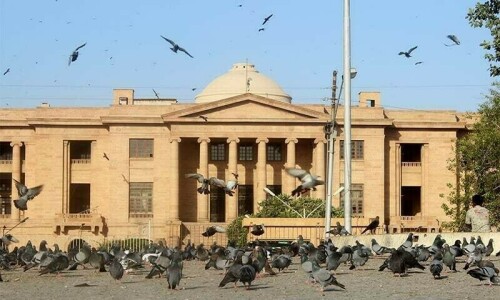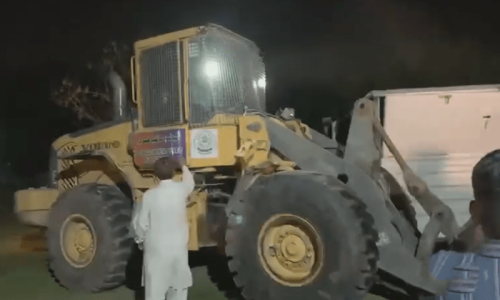BAGHDAD: Shelling in Fallujah, a town near Baghdad held by anti-government fighters, killed four people, officials said Thursday, as Barack Obama pressed “political measures” along with security operations to fight militancy.
But with an election looming in April, Iraqi Prime Minister Nuri al-Maliki has taken a hard line and trumpeted assaults on militants, with security forces announcing the killing of more than 50 fighters in recent air strikes amid ongoing efforts to retake areas of another city partly out of government control.
Several neighbourhoods in south Fallujah were hit by shelling late Wednesday, residents of the city told AFP, with four people killed and 18 others wounded, according to Dr. Ahmed Shami from the city's main hospital.
Fallujah residents blame the army for the shelling, but defence officials say the military is not responsible. Mortars also struck in the centre of Ramadi but did not cause any casualties, a police captain said.
Parts of Ramadi and all of Fallujah, both west of Baghdad, have for weeks been in the hands of anti-government fighters, including those affiliated with the Al-Qaeda-linked Islamic State of Iraq and the Levant.
It marks the first time militants have exercised such open control in Iraqi cities since the peak of the violence that followed the 2003 US-led invasion.
The government has changed its language in recent days from referring to all anti-government fighters in Anbar as Al-Qaeda to instead using terms such as gangs.
And while Fallujah residents and tribal sheikhs have said ISIL has tightened its grip on the city in recent days, other militant groups and anti-government tribes have also been involved in fighting government forces in both cities.
Iraqi security forces have recruited their own tribal allies.
US President Barack Obama on Wednesday met with Iraq's parliament speaker Osama al-Nujaifi, the country's most senior Sunni politician, and “encouraged Iraq's leaders to continue dialogue to address the legitimate grievances of all communities through the political process,” a White House statement said.
“Both sides agreed on the need for both security and political measures to combat terrorism,” it added.
Diplomats and foreign leaders, including Obama and UN chief Ban Ki-moon, have pushed Maliki to do more to work with Iraq's Sunni community and pursue political reconciliation.
But while the government has made some concessions in recent months to the disaffected minority, it has mostly focused on wide-ranging security operations.
Air strikes launched across Anbar killed 50 militants, including foreign fighters of Arab nationality, the defence ministry said Wednesday.
Soldiers, police and SWAT forces have meanwhile joined with tribal allies in an offensive that continued Wednesday against gunmen holding several neighbourhoods of Ramadi.














































Dear visitor, the comments section is undergoing an overhaul and will return soon.